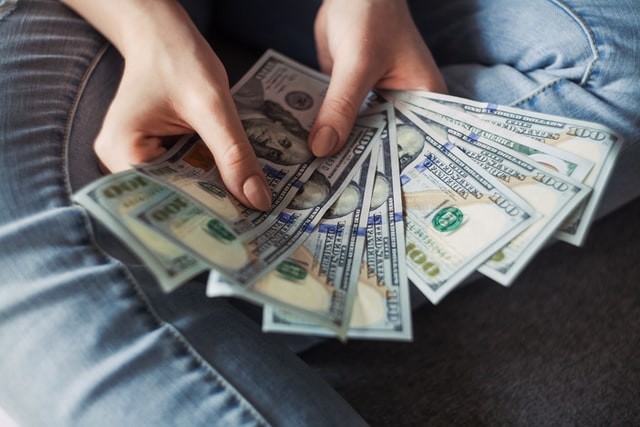
(Photo : unsplash)
We hear a lot of news stories these days about how a large proportion of people have no money set aside for emergencies. This is understandable, because the high cost of living in comparison to wages can make the notion of saving seem impossible for many of us. However, it's equally true that having an emergency fund set aside just in case something goes wrong is crucial for helping you to deal with those unexpected events that will inevitably occur. Here's why:
Why you need an emergency fund
When we're young, it's easy to feel as though we're invincible. Medical emergencies, job losses, and other disasters seem like problems that only happen to other people. The reality, however, is very different - as we've learned during the recent COVID-19 pandemic, during which time many people found themselves suddenly struggling to make ends meet. As such, it's important to have some savings squirreled away that will help you to weather the storm if and when it occurs.
An emergency fund is particularly important if you are reliant on only one income, or if you own your home and are therefore responsible for any costly repairs that need to be done (for example if your heating breaks down). Of course, it's always possible to take out an emergency loan if you don't have the money available, but a rainy-day fund will help you to avoid this. Using your own savings is preferable to getting a loan because you don't have to worry about factors such as how quickly your application will be approved, when you will receive the money, how much interest you will be charged, and how you will be able to pay it back.
In terms of specific amounts, the general advice is to try and set aside enough money to cover at least three months' worth of living expenses. That includes rent or mortgage payments, utilities, food, and other necessities. This might sound like a lot, but if the time comes when you need to dip into your emergency fund, you will be glad that you put this amount aside. Think of it like an insurance policy, except rather than paying monthly premiums to an external company you are putting aside money for your future use.
Building up an emergency fund can sound intimidating, but luckily there are many simple steps you can take to help build up your savings. Some involve reducing your outgoings, while others involve boosting your income. Over time, those little actions can add up to a lot.
Tips for growing your emergency fund
If you are unsure where to begin when it comes to saving, don't worry! We all have to start somewhere, and the sooner you set up your emergency fund, the sooner you will see just how quickly you can build up that nest egg.
These top tips will help you to get your balance rising in no time:
- Keep track of your outgoings so that you know where your money is going. You might be surprised to find out how much you are spending on little items such as takeaway coffee.
- Create a budget and stick to it - if you have never made one before, there are plenty of apps to help you with it. Budgeting can be a much more effective way of cutting your spending in comparison to making vague goals such as 'spend less money on food'.
- Cancel unnecessary subscriptions. This could be a membership to a gym you never go to, or an entertainment service you don't use any more. Another alternative is to try and save some money by switching to family plans that cost less per person, rather than individual ones.
- Cook at home instead of eating out. Pack a homemade lunch for work rather than buying it from a cafe or coffee shop every day and cook dinners at home. Not only is this better for your wallet, it is usually better for your physical health too. If time is an issue, try doing all your cooking at the weekend and freezing meals for weekdays.
- Switch to cheaper brands in the grocery store. Most of the time, you can't truly tell the difference between them in terms of taste or quality, and over time you can save a huge amount of money by not paying just for a brand name.
- Write a shopping list and stick to it - it helps if you don't go shopping on an empty stomach!
- Save money on heating by reducing the thermostat by one degree and dealing with drafts so that all the hot air is not being lost to the outside.
- Turn off all appliances and lights when not in use to save on electricity costs. This is good for the environment and your wallet!
- Shop around when it comes to energy suppliers, cellphone providers, insurance, and similar expenditures - you might be surprised at the great deals you can find.
- Set up an automatic transfer from your checking account to your savings account just after payday. That way you will be guaranteed to save money every single month, and you might not even notice the difference.
- Make the most of vouchers and loyalty schemes when shopping.
- Exercise patience when making purchases - if it's not an emergency, wait a day and see if you still want the item. When shopping online, leaving items in your cart without buying them can also prompt companies to send you discount codes in order to secure your business.
- Sell old clothes and other items that you no longer want online. Not only can this be a great way to make some cash, it also helps you to clear your house of clutter.
- Pick up extra shifts at work or start a side business to make a little more money - Entrepreneur has some great ideas to get you inspired. Just be sure not to push yourself too hard - always put your mental health first.
- Have a clear goal in mind to keep you motivated and help you track your achievements!
* This is a contributed article and this content does not necessarily represent the views of hngn.com








